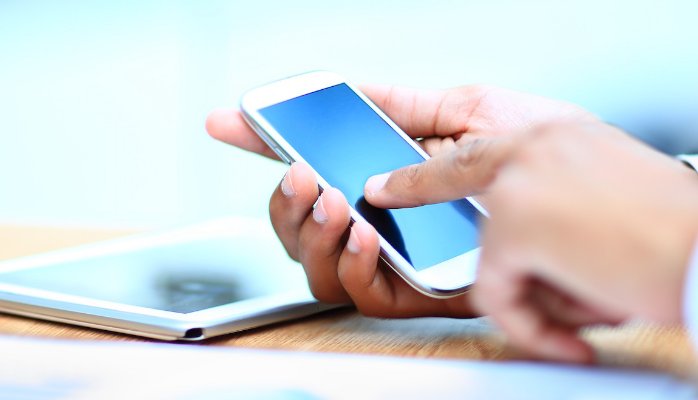
Why You're Bored With Your Smartphone
The mobile technology landscape has gone through an incredible metamorphosis over the last 18 months. What use to be fun experiments and scientific marvels have become the defacto in personal computing. With the advents of Microsoft Surface, iPhone and Google Nexus, we are truly in a world where the PC is no longer our digital hub. This has been amplified by the ferocious success of Office365 and services like Dropbox. Amazon has even allowed serious enterprise to rely on cloud computing for hosting and services.
So why am I bored with it?!
1. Reality vs. Possibility
We’ve all imagined ourselves on a beautiful beach or mountain breaking our worldly chains and working away from our desks. We’ve dreamt of operating without a clunky laptop or heavy piece of technology. We’ve thirsted for what Blackberry and Apple sold us, desperately grasping for the most powerful handhelds in hopes they would allow us to experience the grace of leaving our offices without anyone being the wiser.
The reality is unpleasantly different. We’ve all had that moment of trying to make last minute edits to a presentation only having to pull out our laptops to accomplish the deed. We’ve all received that email, only to enter a dead-zone forcing us to guess the Vietnamese deli’s WiFi password while we feverishly eat a late lunch. Even worse, many of us find ourselves wishing we didn’t have our device so that we could enjoy the end of our favorite TV show.
Just like the laptops of years past, our phones are becoming more powerful. With more capability comes more serious tasks; less enjoyable…less fun.
2. More apps…less control
In 2003, Blackberry released the 7230 and the world fell, desperately, in love with its simplistic charm. The device was engineered for pleasure. It could guarantee success because Blackberry controlled hardware and software; each and every feature. In 2007 Apple did the same when it released iPhone. It was a device completely unaltered by amateur developers or software artisans.
In 2016 the market is ruled by Google and Apple. These goliath’s have opened Pandora’s box giving everyone, with enough imagination, access to the mobile community. Manufacturers, designers and craftsman, of all walks of life, can contribute to the ever-expanding universe of mobile apps. While some of these creations have changed our lives, others clog our pipes.
Apple and Google might hold the keys to the gate, but they aren’t combing each line of code for compatibility. Nor are they ensuring the UX is that of the OS. We’re safe from the underbelly of society, but we’re still pushing through the crowd of 1’s and 0’s stifling our devices. Again, like the technology of yesteryear, our phones and tablets have become useful, but less pleasant to navigate.
3. Swimming in a sea of boredom…
I have at least 12 different methods of contacting people I know. Facebook, Instagram, LinkedIn, Messenger, iMessage, Hangouts, Skype, FaceTime, Telephone; the list goes on and on for some. The problem is, I only know so many people. I have the same problem for news, flights, music, video; numerous paths to the same destination. This is an inevitable course of action. We can blame Microsoft for allowing people the choice on how to accomplish the same things, multiple ways.
That being said, it probably is the best way of getting things done. Choice, functionality and usability. It’s…just not exciting. I’m no longer captivated by the glow of my little handheld screen. Nor am I excited to navigate its apps and menu’s. Again, our phones and tablets are becoming what laptops and palm pilots were; enterprise tools for getting things done, both professional and personal.
What’s next?
There’s a lot of speculation around what will happen to the computer market in the next 5 years. I, personally, don’t believe notebooks will go anywhere. The days of desktops might be numbered, but they, too, will exist to some capacity for the specialized markets they still serve; high-end gaming, professional video, 3D modeling, POS.
Notebooks are getting cheaper and better. They still hold upright on the couch or desk and deliver a pretty spectacular experience for creation of documents and media.
Tablets are melding more into notebooks and may eventually become synonymous with notebooks. Surfacebook is the first insight into what tablets and notebooks could be in the future. Devices with shared resources, different form factors and changing modes of operation. I feel strongly that we are on the cusp of a renaissance. Tablets and notebooks will become one, giving way for your handheld to become the portable version of your 2-in-1. It’s possible to imagine a workday that begins and ends on your handheld, but seamlessly transitions to your notebook. Two years ago, this was unimaginable.
I DO NOT believe wearables will replace the handheld, but have introduced the idea of appliance technology…again. Like WebTV of the past, watches, bracelets, locks, lights, thermostats, cameras, glasses and shoes will integrate seamlessly with the experience of your mobile.
We are seeing the gestation period now. Nest, Apple Watch, Fitbit, August, Wink, etc. They are the embryos that will carry in a wave of technology we are just beginning to understand. The excitement returns when we see our lights change as we arrive home. We fall in love when our home automatically adjusts its temperature. We are captivated by our step counts and energy reports. What’s coming is exciting and new. We need to embrace where we’ve been, but also where we’re going. You can’t cling to Exchange servers and lust over Philips Hue. You can’t rock iOS 6 and beg for compatibility with Wink. Once you suspend disbelief and allow legacy products to die, the grass grows, the world turns, and you get the excitement of a new toy.


